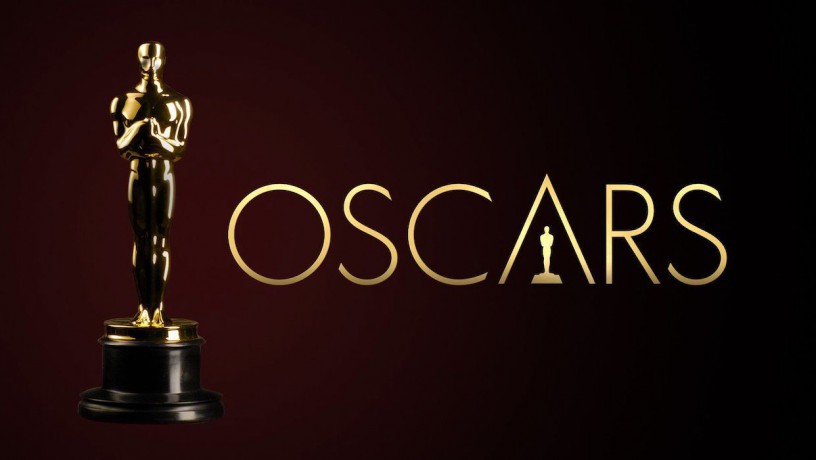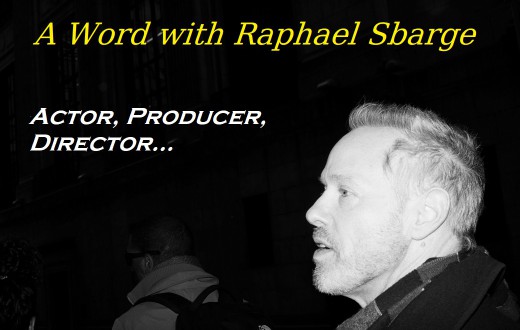In this series, I will break down every acting nominee for the 2023 Academy Awards, one category at a time. This series will not attempt to predict the winners, nor will it declare that anyone “should” win. It is a breakdown and celebration of each performance and why each deserves to win. Each article will also highlight another eligible 2022 performance which was not nominated but is also worth discussing.
Some of these breakdowns will mention plot points from the films, so watch out for spoilers. The 2022 nominees for Best Supporting Actor are: Brendan Gleeson, Banshees of Inisherin; Brian Tyree Henry, Causeway; Judd Hirsch, The Fabelmans; Barry Keoghan, Banshees of Inisherin; and Ke Huy Quan, Everything Everywhere All At Once. Another performance worth highlighting is Ben Whishaw in Women Talking.
Brendan Gleeson
Film: The Banshees of Inisherin
Role: Colm, a man in a small Irish isle in 1923 who distances himself from his best friend,
Padraic (Colin Farrell).
Background: This is Gleeson’s second time collaborating with writer-director Martin McDonagh and co-star Colin Farrell after In Bruges (2008). Brendan Gleeson’s acclaimed career has spanned decades, with an Emmy win for his role in HBO’s biographical drama Into The Storm in 2009 and 5 total Golden Globe nominations. However, this is his first ever Oscar nomination. On the awards trail for this role, he has received nominations at the SAG, BAFTA, Critic’s Choice, and Golden Globe awards, as well as a win from the National Board of Review. His case is also bolstered by the love for Banshees of Inisherin itself; it’s a wonderful film which is considered to be one of the greatest Best Picture contenders.
Why he deserves to win: The character of Colm is sour and irrational; he is so dead set on cutting his friend out of his life that he even threatens to cut off his own fingers. The behavior is so hard to comprehend that the entire film’s premise is dependent on a convincing and believable performance from Gleeson. He was able to deliver on all that and then some. Gleeson brings a humanity to Colm, making the audience care for him despite his actions. It is believable that he was a good friend to Padraic at one time. Gleeson’s eyes speak volumes, with his microexpressions communicating the struggle going on in his head. It is hard for an actor to bring an audience into the internal struggle in a character’s mind; Gleeson seems to do it effortlessly. He also helps sell the comedy of the film by staying completely grounded; instead of hamming up the humor, he plays the character completely serious. Overall, he deserves to win for bringing a grounded subtlety to an absurd film and for bringing a complex humanity to an irrational character.
Brian Tyree Henry
Film: Causeway
Role: James, an auto mechanic dealing with physical and mental trauma after a car accident,
who befriends Lynsey (Jennifer Lawrence)
Background: Brian Tyree Henry gained fame for his portrayal of Paper Boi, a fictional up and coming rap artist, on hit FX series Atlanta. Since his breakthrough in 2016, he’s starred in a variety of films and TV shows, from intimate dramas to large-scale blockbusters. Now, in 2023, he has earned his first Oscar nomination. His nomination is the only Academy nomination for Causeway, which was released by Apple TV to a positive critical reception.
Why he deserves to win: Causeway is a very well-done movie with a relatively bleak tone overall. As James, Brian Tyree Henry brings some much-needed positivity to the film; his character is very kind-hearted and has some funny moments. However, there is also a tragedy to the character which simmers under the surface, revealed over time as he explains more and more of his backstory. James has made some mistakes in the past which still haunt him. There are several extremely vulnerable moments which Henry plays perfectly. He also has several “Oscar Winning Moments” – emotional monologues about his checkered past, delivered with natural and deep emotion. In one scene in particular, a drunk James shares a heartbreakingly sweet recollection of his life before his accident. The openness of that scene is very striking, because for much of the film, you can see in his eyes that he’s choosing his words very carefully. Brian Tyree Henry does an excellent job at letting us into the character’s headspace, turning his scenes from dialogue-heavy exposition dumps into fully realized character moments. It’s a subtle, yet very memorable, performance that hits the audience right in the feels.
Judd Hirsch
Film: The Fabelmans
Role: Uncle Boris, an eccentric extended family member who used to work in the movies.
Background: First nominated for his role in Ordinary People (1980), Judd Hirsch has broken the record for the longest gap between Oscar nominations with his second-ever nomination for The Fabelmans in 2023. While he has not snagged any major wins in the leadup to the Oscars this year, he does stand to benefit from the popularity of Fabelmans, which is a major Best Picture contender.
Why he deserves to win: Uncle Boris is only in a few scenes of The Fabelmans; he’s got the least screen time of any nominee this year across all 4 acting categories. That didn’t stop Judd Hirsch from leaving a gigantic impression on screen; even in limited scenes, he is one of the most memorable characters in the entire film. We all know an older guy with no filter who loves to tell stories and give advice. There is something inherently believable about a character like Uncle Boris coming to visit and completely ignoring social convention in favor of loud rants and intense comments. Hirsch is able to keep the character grounded while tip-toeing as close as he can to being a cartoon character. He makes bold, energetic choices with the poise that only a veteran actor can. The result is a fully realized, eccentric character that blasts in and out of the movie like a hurricane. Perhaps in part due to his success as a stage actor, Hirsch is able to fully commit himself to the role, engaging his body from head to toe while pushing the range of his vocal performance. A less confident actor could have taken this role and done “fine” – instead, the sequence of Uncle Boris’ visit is elevated to become one of the best sequences in the entire movie. Thank you, Judd Hirsch.
Barry Keoghan
Film: The Banshees of Inisherin
Role: Dominic, a troubled young man who is an outsider in the 1923 Irish isle where the film
takes place.
Background: Barry Keoghan has earned his first Oscar nomination at age 30. This cements his rags-to-riches story; the Irish actor has described growing up in foster care and “not even having €2.20 to get the bus to [his acting classes].” His rise to fame has been incredible to watch, as his 2017 roles in Dunkirk and Killing of a Sacred Deer vaulted him to international attention. As described above, Banshees is a major awards contender. Writer/Director Martin McDonagh has seen his cast succeed at the Oscars before, with his previous film Three Billboards Outside Ebbing, Missouri (2017) spawning 2 acting wins from 3 total nominations.
Why he deserves to win: The character of Dominic has a very interesting subplot in Banshees of Inisherin; while the main plotline is about a lost friendship, Dominic is an outcast without many friends. As Padraic begins spending more time with Dominic, he learns more about the abuse Dominic has suffered at the hands of his father, the town guard. Keoghan’s performance is incredible. His character’s story is the darkest of any character in the film, and he plays the dark comedy to a T without seeming “edgy;” rather, he plays the character in an extremely earnest and sincere way. While the character is annoying to the people around him, he comes across more like a child acting out than a dangerous man. His best moment in the film comes when he is rejected by Siobhan (Kerry Condon). As he attempts to express his romantic intentions with her, he nervously wanders around the point, fidgeting with his whole body. Once he is gently let down, he takes a moment to wrap his head around it before uttering one of the film’s best lines: “well… there goes that dream.”
Ke Huy Quan
Film: Everything Everywhere All at Once
Role: Waymond Wang
Background: After appearing as a child actor in classic films Indiana Jones and the Temple of Doom and The Goonies, Ke Huy Quan went years without acting work. He doubted his ability to pursue his dream, and pivoted his career to work behind the camera instead. Nearly 40 years after his iconic performance as Short Round, Quan returned with one of the best comeback stories in recent memory, delivering an incredible performance in Everything Everywhere All at Once which earned him a Golden Globe, a Saturn award, various awards from critics’ associations, and his first Academy Award nomination. Ke Huy Quan’s heartwarming comeback story is just one reason that his Oscar campaign is one of the greatest odds-on favorites in the whole ceremony.
Why he deserves to win: Within the first act of Everything Everywhere All at Once, a story which spans across the multiverse, the audience is introduced to two completely different versions of Quan’s character: Waymond, Evelyn (Michelle Yeoh)’s meek and goofy husband; and Alpha-Waymond, an action hero from an alternate universe who recruits Evelyn to help save the worlds. To play multiple versions of a character is a unique challenge; each version must identifiably be the same person, but they must each have distinctions as well. It’s an excellent way for an actor to demonstrate their range, which is part of why EEAAO saw the entire main cast get Oscar nominations. Even among such a stellar cast, Quan’s performance stands out due to the stark contrast between the versions of his character that we see. He also represents the emotional core of the movie, as his earnest performance as Waymond is as heartbreaking as it is hilarious. This performance presents Ke Huy Quan with a unique gift after such a long hiatus from acting: his extremely wide range as an actor has been showcased, and within a single film, he’s got a more diverse acting reel than most actors could have put together in the 40 years since he played Short Round.
Ben Whishaw
Film: Women Talking
Role: August, an educated man in a Mennonite community who is sympathetic to the struggle
of the women.
Background: Women Talking, adapted by filmmaker Sarah Polley from Miriam Toews’ 2018 novel of the same name, is an extremely powerful and dark drama film about a group of women in an isolated Mennonite community who must decide how to move forward after they are all sexually assaulted. The film features a very impressive ensemble cast of women, including Rooney Mara, Jesse Buckley, Claire Foy, and 3-time Oscar winner Frances McDormand. The only adult male performance featured in the film is Ben Whishaw, who plays August, an educated man who is sympathetic to their needs and, due to his ability to read and write, is able to keep notes of their meetings. Whishaw’s award campaign has been tamped down by the awkwardness of the situation – with an ensemble of incredible actresses, and a film literally titled Women Talking, isn’t it weird to give the recognition to the lone male performance of the film? However, his performance is too good to ignore, and August’s position as an outsider is exactly why he stands out among the ensemble cast. That’s why, despite not receiving an Oscar nomination, I have chosen to highlight him here.
Why he deserves to be mentioned: In a way, the character of August is an audience surrogate – someone watching and taking notes as the women have their discussion – which calls to mind the importance of active listening for actors. Even as his character is not talking, we can see the gears turning in Whishaw’s head. When he does speak, it is very clear that he is choosing his words carefully, offering insight into the character’s mind. The restraint demonstrated throughout – whether he’s tamping down his romantic feelings for Ona (Rooney Mara) or not getting angry when things get heated – make it an even greater payoff when August does have an outpouring of emotion towards the end. The emotional moments feel very earned and believable. As for him being the only man on the cast, I think this helps his case more than it hurts it. While the film is about the women’s attempt to forge a path forward after their abuse, August’s importance becomes clearer and clearer throughout; as the teacher of the boys in the colony, he has a responsibility to take a more active role in preventing these kinds of abuse. It’s not enough for him to be respectful and sensitive; he must also help set a precedent that the next generation will behave that way, too. Recognizing Ben Whishaw’s performance is also, in a way, recognizing that stories like Women Talking aren’t only for women – it is important for men to watch, listen and be a part of the solution.







